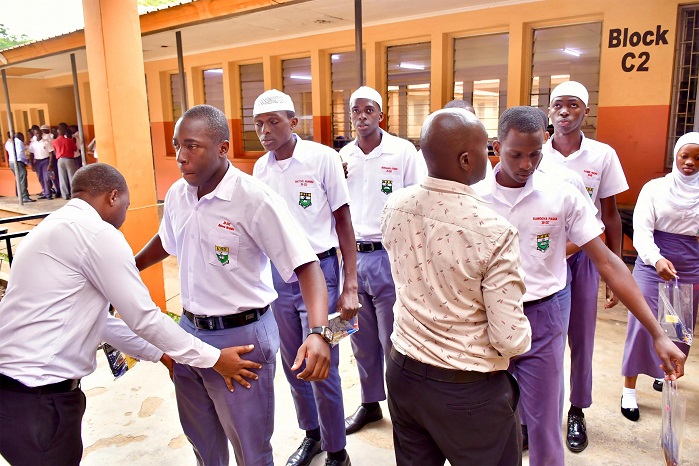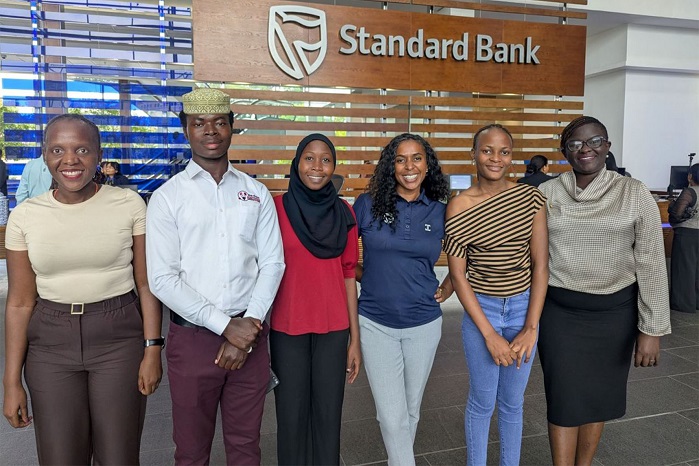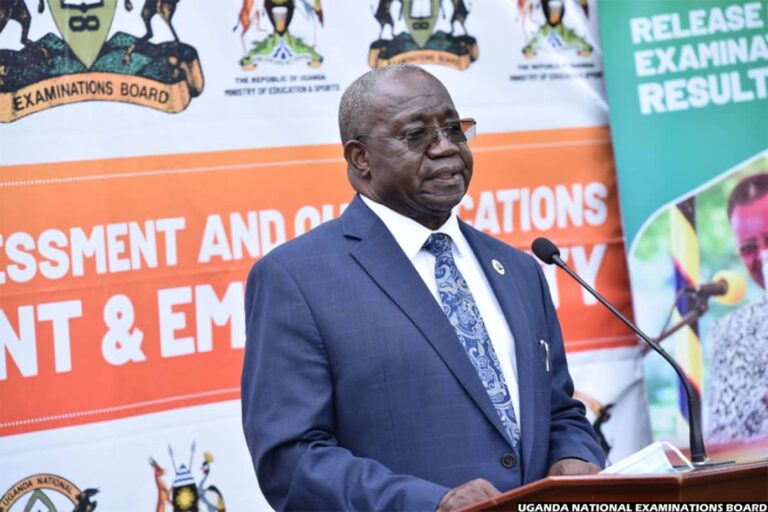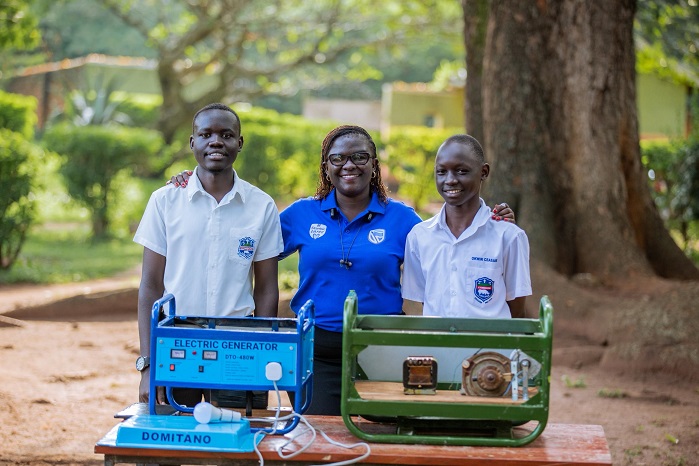
Diana Ondoga, the Stanbic Head of Corporate Social Investment (CSI) together with Michael Okao and Okwir Ceasar during the appraisal visit
HABARI DAILY I Kampala, Uganda I Young innovators under Stanbic Bank Uganda’s National Schools Championship have stormed the entrepreneurial fraternity with inventions that are likely to impact thousands of lives.
Among these are two students of Comboni College in Northern Uganda, who have developed a smoke-free, fuel-less electric generator that is lighting up tens of bulbs.
Michael Okao (Senior Three) and Ceasar Okwir (Senior One), are some of the members of the Comboni Innovation Enterprise, who have participated in the Stanbic National Schools Championship ‘Battle of Champions,’ which is heading towards the grand finale, set to take place at the end of this month.
These are some of the members who have boosted the local entrepreneurship fraternity using their inventiveness by responding to a community need, and changing the conversation around clean energy in Uganda.
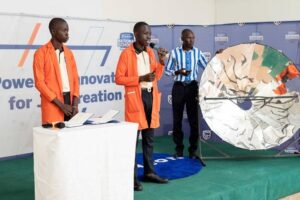
Comboni College School Lira, the overall winner of the 2023 Stanbic-NSC won for the school a fully installed solar system worth Shs 20 million
“We designed this generator for the people of Otuke and Alebtong, where less than 22.5% of households have access to reliable electricity,” Okao said.
Built entirely from affordable components, the innovation produces up to 240 volts of electricity without burning fossil fuels, thus making it not only sustainable, but also potentially transformative for rural communities struggling with power instability.
He said their project, part of the NSC’s Innovation and Entrepreneurship Challenge, runs without fuel, produces no smoke, and helps protect the environment.
National traction
Following a recent appraisal visit by the NSC team of judges, their invention has quickly gained national attention.
Catherine Asayo, Stanbic Bank’s Project Manager for NSC said: “We are impressed with the progress all our finalists are making towards turning their ideas, which were pitched during the boot camp in May, into real and investable projects.”
She added that the visits they are currently undertaking are more than just assessments, since they are playing a vital role in verifying project progress, assessing feasibility, and ensuring the credibility of submitted proposals.”
Asayo, whose team also verifies the competing projects for feasibility, and community impact, added that the regular visits help identify gaps, validate claims, assess impact potential, and ensure accountability, ultimately informing decisions around funding, scaling, or further support.
Currently, Stanbic and Start Hub Africa teams are traversing all the eight finalists countrywide. During the visit to Comboni, judges saw first- hand how Okao and Okwir’s innovative generator can power up to five LED bulbs, small radios, and basic mobile phones.
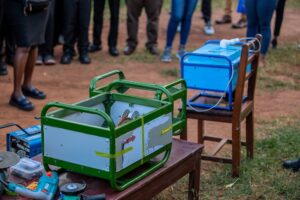
Comboni generator prototype
Okwir said recent upgrades, including the installation of a rectifier, allows their battery to recharge during operation, significantly extending its usage time.
So far, the team has manufactured seven mid-sized units and one larger prototype already undergoing community testing.
Multiple inventions
This is not Comboni College’s first spotlight on a national scale. In 2023, they won the NSC with a solar concentrator for clean cooking, a project that later clinched the Commonwealth Sustainable Energy Transition Award.
That ground breaking innovation was also led by Okau, then a senior one student
Okao further said: “Our communities need power for schools, clinics, and homes. We thank Stanbic Bank for creating a platform for us to learn and showcase our skills. Our school has also created an enabling environment for us to study as we invent these solutions tackling real community problems.”
While speaking about the future and sustainability of this project, Okao said they are confident about a bright future as the current generators will soon lose market share because they pollute the environment.
“We have already started the move to ensure that our copyright under intellectual property rights are protected with the Uganda Registration Services Bureau (URSB),” he said, adding that they know that their generator project is here to stay.
“We don’t pollute the air nor destroy the environment. Our project aligns with global climate goals and provides a real alternative to fossil-fuel-based power sources,” Okao said.
Engine for innovation
The NSC was initially launched in 2015 as an inter-schools debate competition. But during the past decade, it has evolved into a platform for critical thinking and innovation.
It complements the Ministry of Education and Sports’ newly rolled out competency based curriculum as well as the government’s wider efforts to encourage entrepreneurship among Ugandans.
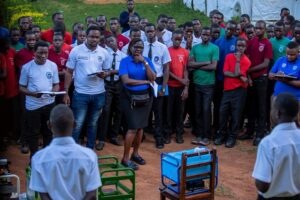
Stanbic Bank team led by Diana Ondoga Head of Sustainabilty interacting with Comboni students dueing the appraisal visit
Asayo says that the NSC has to date impacted over 500,000 students, with this year’s edition being held in partnership with the National Environment Management Authority (NEMA), which has championed the inclusion of eco-friendly solutions in the competition.
Although their eyes are clearly directed at the grand prize which means seed funding and mentorship to commercialize their idea, Okao and Okwir are also mindful that they have developed something that is not only destined to cut energy costs, and protect the environment, but also create jobs.
Okao said, “We have a mission to scale this project so that every rural household in Uganda can access affordable and clean electricity. And we are confident in bringing glory to the Northern region again by winning the NSC.”.


